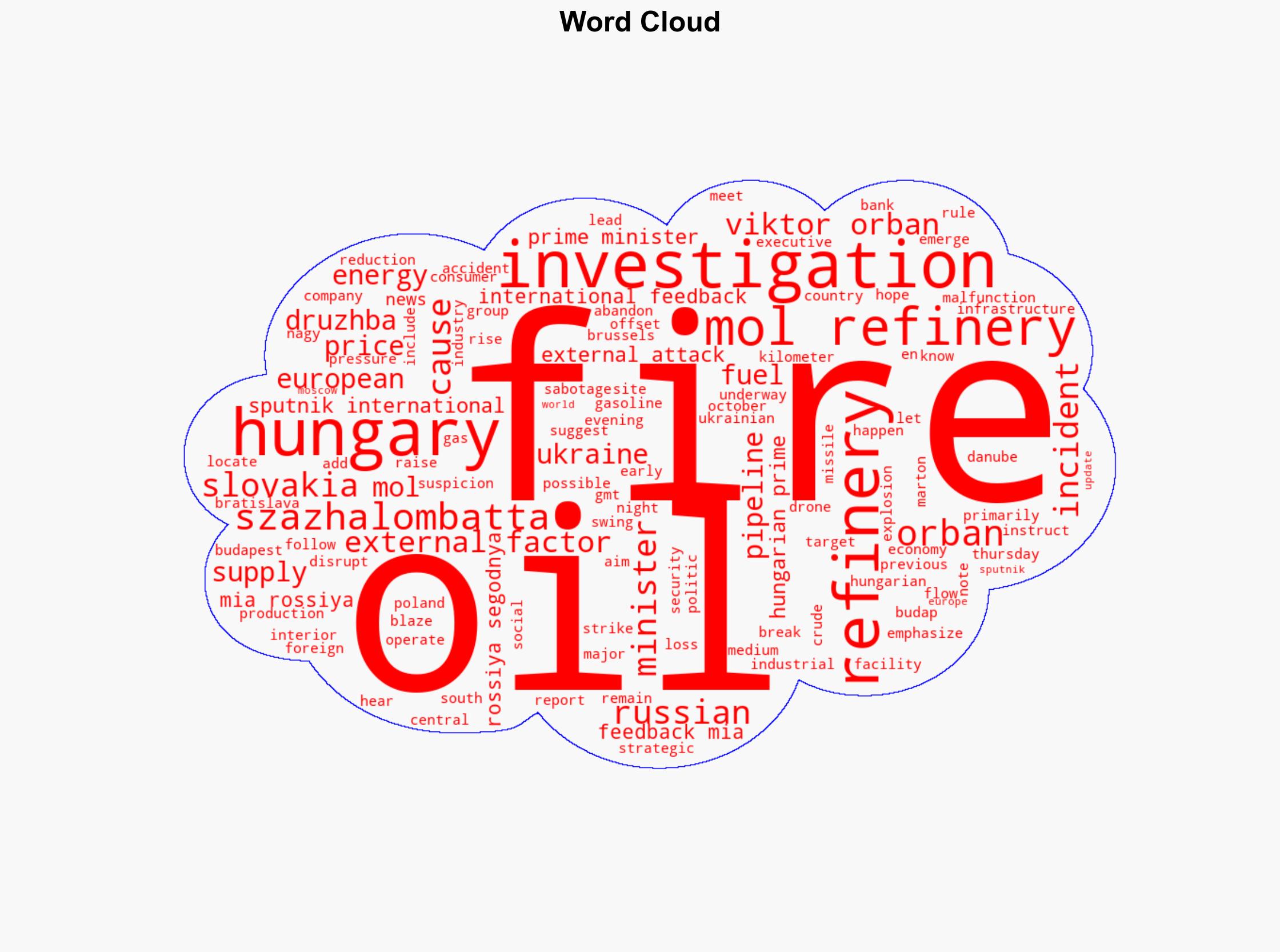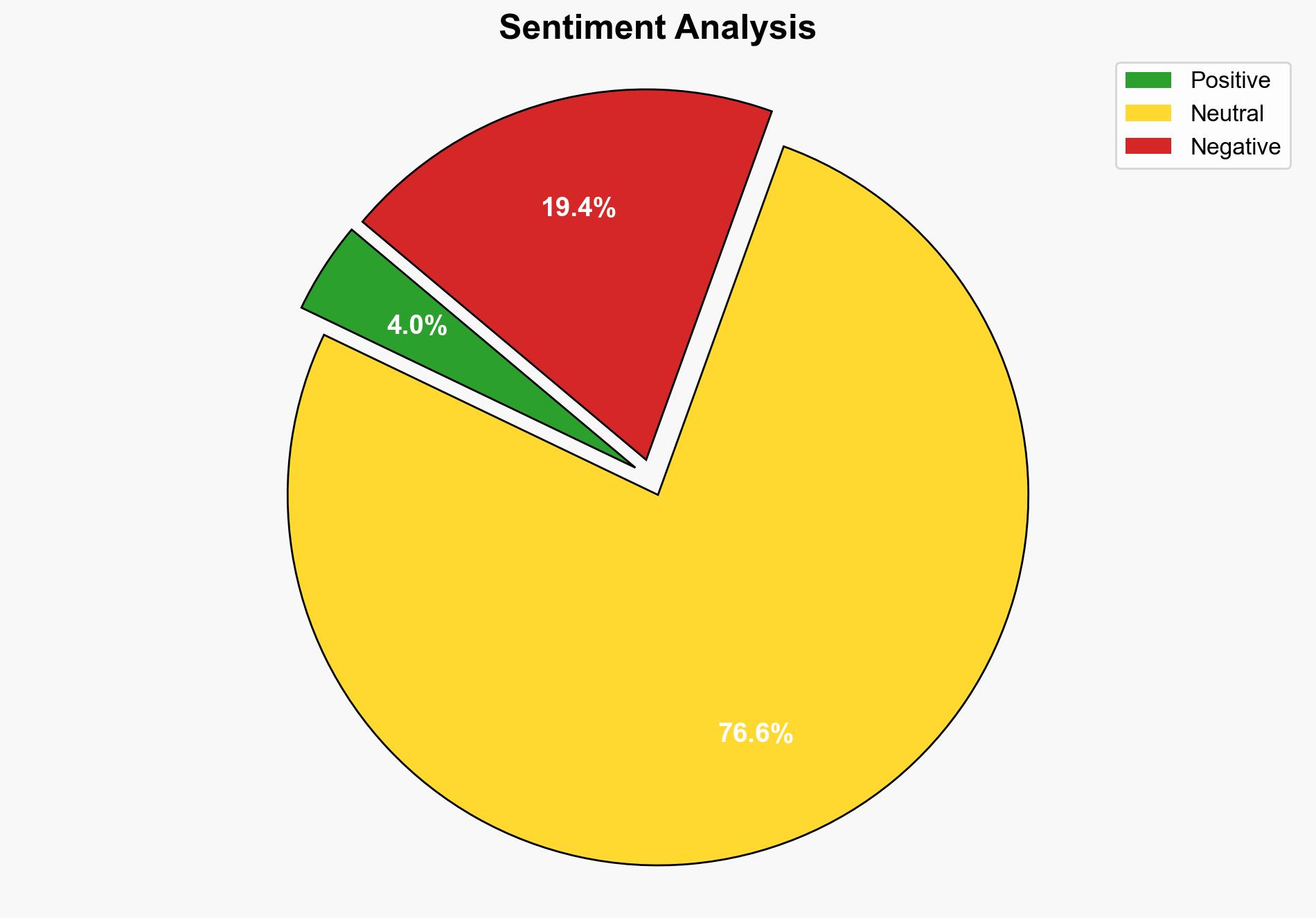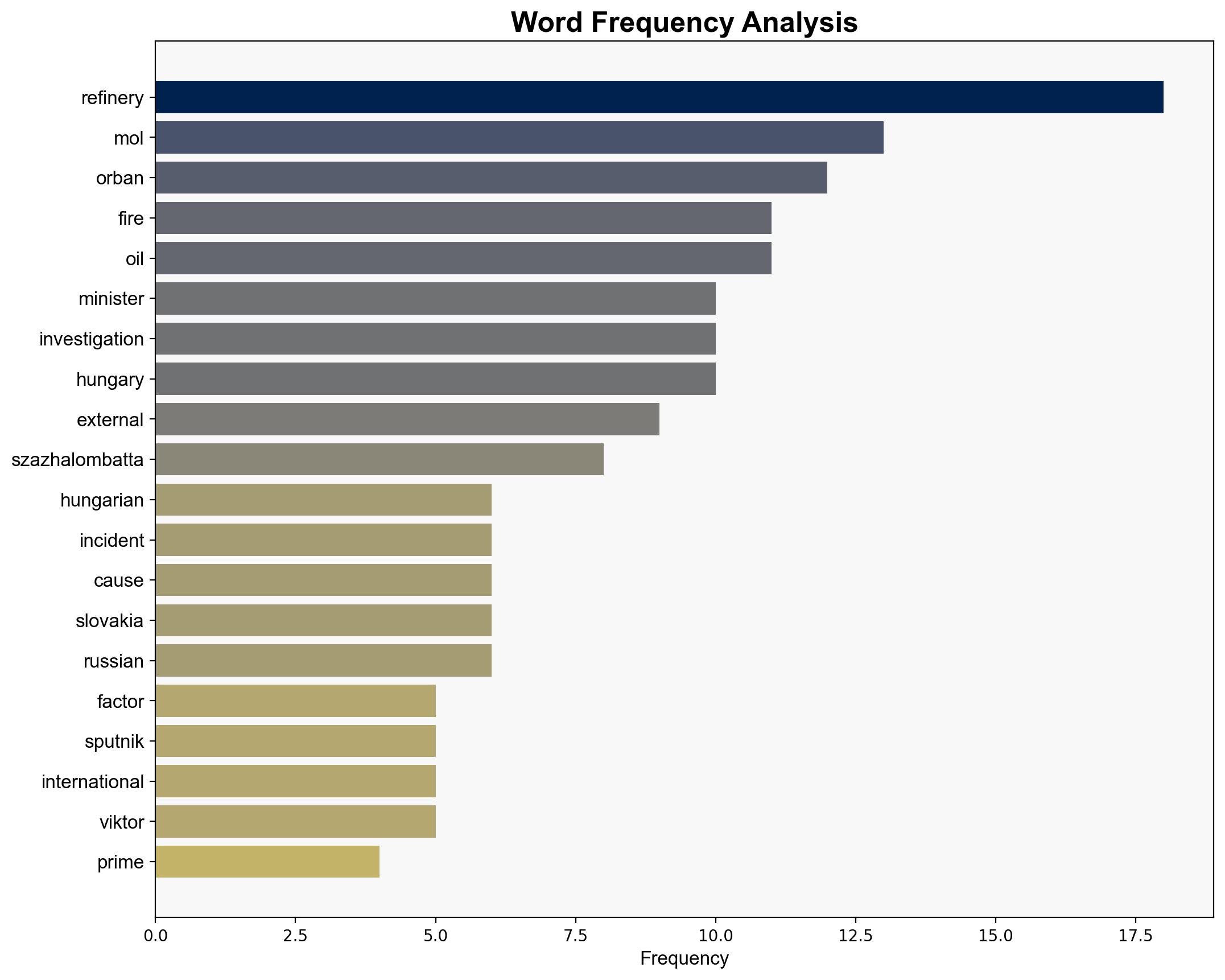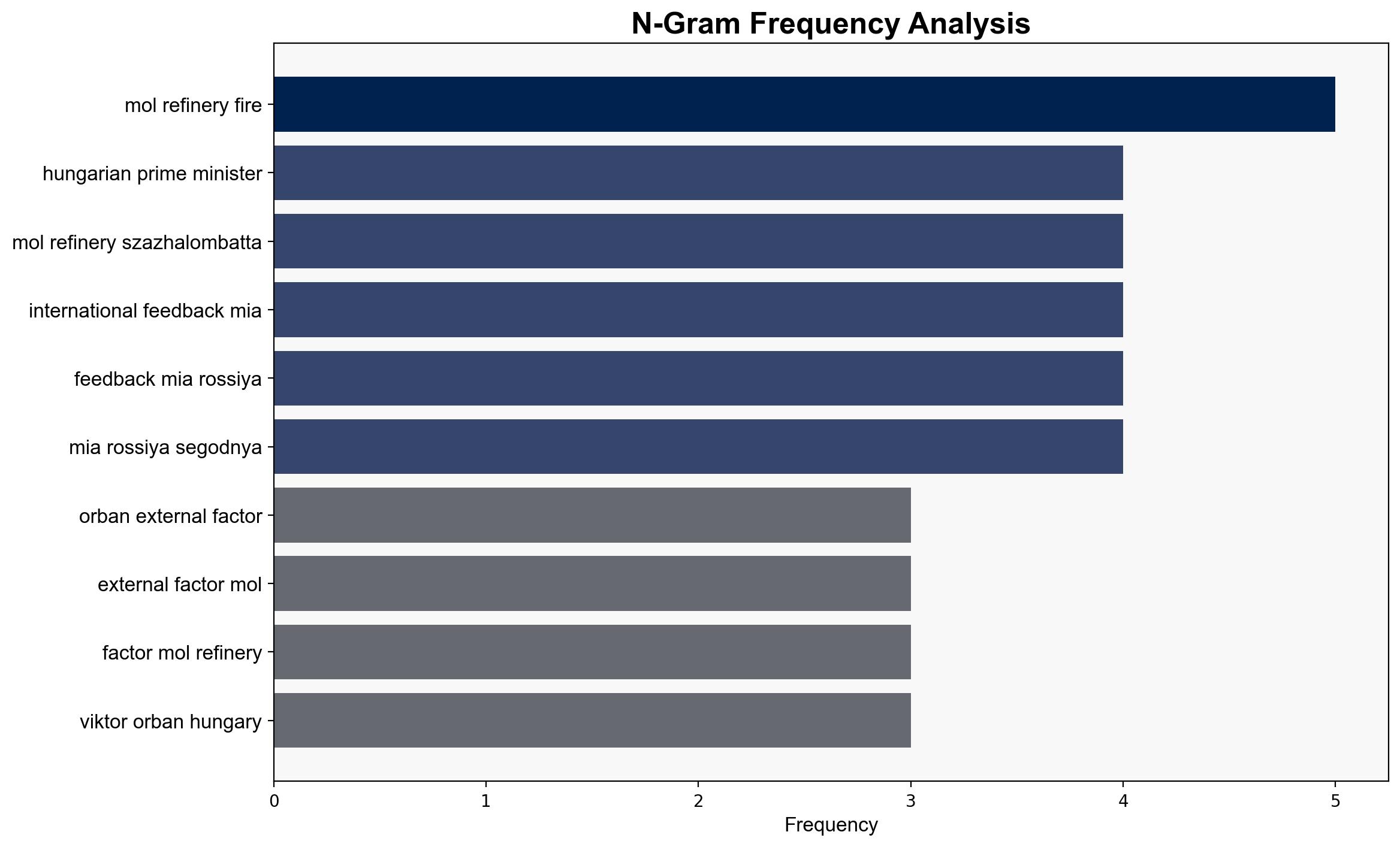Orban Does Not Rule Out That Fire at MOL Refinery Caused by External Factor – Sputnikglobe.com
Published on: 2025-10-30
Intelligence Report: Orban Does Not Rule Out That Fire at MOL Refinery Caused by External Factor – Sputnikglobe.com
1. BLUF (Bottom Line Up Front)
The most supported hypothesis is that the fire at the MOL refinery was caused by an internal malfunction rather than an external attack. This conclusion is drawn with moderate confidence due to the lack of concrete evidence supporting external sabotage. It is recommended to enhance security measures at strategic facilities and conduct a thorough investigation to confirm the cause, while preparing for potential geopolitical ramifications.
2. Competing Hypotheses
1. **Hypothesis A**: The fire was caused by an internal malfunction or accident. This is supported by the lack of direct evidence of an external attack and the complexity of refinery operations, which are prone to technical failures.
2. **Hypothesis B**: The fire was the result of an external attack or sabotage, possibly linked to geopolitical tensions involving Ukraine and the pressure on Hungary and Slovakia to abandon Russian oil supplies.
Using ACH 2.0, Hypothesis A is more likely due to the absence of specific indicators or claims of responsibility that typically accompany sabotage. Hypothesis B remains plausible given the geopolitical context but lacks direct evidence.
3. Key Assumptions and Red Flags
– **Assumptions**: It is assumed that the investigation will be impartial and thorough. There is also an assumption that the geopolitical context does not automatically imply sabotage without evidence.
– **Red Flags**: The absence of detailed information on the investigation’s progress and findings raises concerns. The potential bias in reporting from sources with vested interests is also a red flag.
– **Blind Spots**: Potential cyber vulnerabilities at the refinery are not addressed, which could be an avenue for external interference.
4. Implications and Strategic Risks
– **Economic Impact**: Disruption in fuel supply could lead to increased prices and economic strain in Central Europe.
– **Geopolitical Tensions**: If sabotage is confirmed, it could escalate tensions between Hungary, Slovakia, Ukraine, and the EU, potentially impacting energy policies.
– **Security Concerns**: The incident highlights vulnerabilities in critical infrastructure, necessitating improved security measures.
5. Recommendations and Outlook
- Enhance security protocols at critical energy infrastructure to prevent future incidents.
- Conduct a comprehensive investigation to determine the cause of the fire, ensuring transparency and international cooperation.
- Prepare for potential geopolitical fallout by engaging in diplomatic dialogues with involved parties.
- Scenario Projections:
- Best Case: The fire is confirmed as an accident, leading to improved safety measures without geopolitical escalation.
- Worst Case: Sabotage is confirmed, leading to heightened tensions and potential retaliatory actions.
- Most Likely: The cause remains inconclusive, but increased security measures are implemented as a precaution.
6. Key Individuals and Entities
– Viktor Orban
– Marton Nagy
– MOL Group
7. Thematic Tags
national security threats, cybersecurity, counter-terrorism, regional focus




